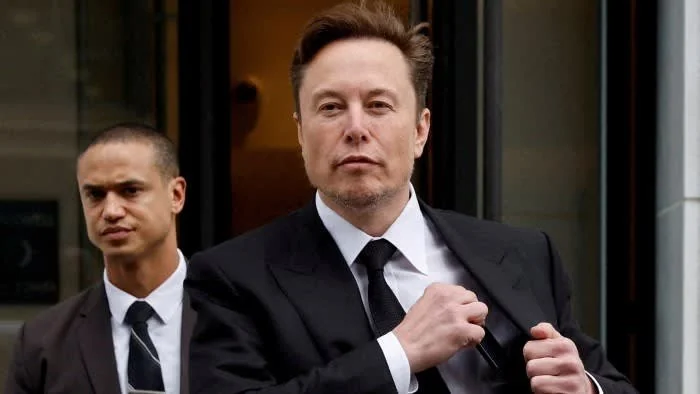A shareholder’s attorney told a Delaware judge that $7 billion in fees for challenging Musk’s $56 billion Tesla pay package encourages accountability for corporate boards
Three law firms that represented Richard Tornetta, who owned nine shares of Tesla when he sued over Musk’s pay package in 2018, were the subject of a more than six-hour dispute between the company’s legal teams and a shareholder regarding the amount to award.
Court documents submitted by Tornetta’s attorneys indicated that the fee Tornetta has requested on behalf of the firms is approximately $7.3 billion at Tesla’s Monday stock price, which equates to a rate of roughly $370,000 per hour worked by the 37 lawyers, associates, and paralegals.
On Monday, Tesla’s attorney, John Reed, stated that the fee petition was never warranted.
He informed Chancellor Kathleen McCormick of the Court of Chancery, “It appears to be a real-life lawyer joke.”
A Delaware judge’s January ruling, which revoked Musk’s $56-billion compensation package, creates a new tab, as the legal fee represents a portion of the value that the plaintiff’s lawyers claim was generated for Tesla (TSLA.O).
Bernstein Litowitz Berger & Grossmann is one of the firms that represented Tornetta. Greg Varallo, Tornetta’s attorney, stated that the shareholder’s legal team requested a significantly lower amount than the law permits, up to 33% of Tesla’s benefit from the litigation.
He contended that the January ruling was the most significant judgment ever rendered by an American court, except for punitive damages. He further claimed that Tornetta’s attorneys should receive 11% of the judgment in 29 million Tesla shares.
Varallo contended that a substantial fee award would motivate shareholder attorneys to pursue measures to safeguard small investors.
“If Delaware continues to perceive value in policing bad behavior, then narrowing incentives would be a terrible idea,” Varallo indicated.
Reed contended that the January ruling had a detrimental impact on Tesla’s stock price by fostering uncertainty regarding Musk’s future at the company.
He requested that McCormick award a fee of at most $13.6 million.
According to court documents, approximately 1,500 letters and objections regarding the fee have been submitted by over 8,000 Tesla stockholders.
The current record fee in shareholder litigation, which is $688 million in an Enron class action, is significantly exceeded by the request, according to Stanford Law School.
Tesla shareholders voted to ratify Musk’s pay in June, which Tesla has argued corrected the defects in the 2018 process that McCormick identified in her ruling. This marked a significant turn in the Musk case.
The company contends that Musk’s compensation package has been reinstated and that Tornetta’s legal victory has been converted into a loss.
In the upcoming weeks, McCormick will be presented with arguments regarding the legal implications of the ratification vote.
It may take weeks or months for McCormick to decide the legal fee.
The Delaware Supreme Court is reviewing a $267 million fee request in a shareholder class action involving Dell Technologies. This decision has the potential to offer fee guidance.
